Reviews
Susan Saladoff
USA, 2011
Credits
Review by Victoria Large
Posted on 29 May 2011
Source projected DVD
Categories The 2011 Independent Film Festival Boston
Hot Coffee opens with Seinfeld’s famous bass line and a clip of Kramer, the show’s goofiest character, explaining that he plans to sue a vendor for selling him coffee that was too hot. The moment is an obvious reference to Liebeck v. McDonald’s Restaurants, the famous 1990s court case that is frequently cited by critics as the ultimate in frivolous consumer lawsuits. More snippets of jokes and commentary follow as we hear from late night talk show host Craig Ferguson and curmudgeonly pundits Andy Rooney and John Stossel. The montage serves as a speedy way for director Susan Saladoff to establish the derisive attitude that many people have toward the case, but much of her audience won’t need the reminder: the Liebeck case has been an easy punch line for some time now.
What initially makes Hot Coffee so compelling, then, is how it debunks many of the common misconceptions about the Liebeck case. Archive footage and new interviews reveal how the facts of the case were widely distorted - Liebeck was not, as is commonly believed, driving her car when she suffered the burns, for one thing - and the severity of Liebeck’s injuries were often downplayed or ignored. Photos of Liebeck’s burned body and reports of the skin grafting that her injuries required are sobering enough to make the jokes not seem so funny anymore.
But despite its title, the film is about more than just the Liebeck case: Saladoff goes on to examine the reasons why the case was so highly publicized in such a negative light, tying it in to larger issues of tort reform (the controversial political movement that seeks to limit the hearing of cases like Liebeck’s and the awarding of damages in such cases) and questions of consumer rights and protection. Saladoff presents a number of extreme cases in addition to Liebeck’s, including that of Lisa and Mike Gourley, whose son Colin suffered brain damage at birth due to medical malpractice. As a result of caps on damages in their state, the Gourleys have been left with $1.25 million to pay for a lifetime of expensive medical care for their son, despite the fact that a jury initially awarded them $5.6 million. The Gourleys’ doctor had been sued for malpractice twice before.
In another highly charged instance, former Halliburton employee Jamie Leigh Jones is shown battling to even have her case heard in court. Though Jones was allegedly gang-raped while working for Halliburton in Iraq in 2004 (Jones had to have reconstructive surgery as a result of her injuries.), a mandatory arbitration clause in her employment contract has prevented her from bringing her case to trial. The scenes of Jones arguing for her right to trial are among the most gripping in the film.
Hot Coffee is a galvanizing and often infuriating documentary, which is just what Saladoff has intended here. It presents its arguments against tort reform in a way designed to stoke viewers’ emotions, and it succeeds as fiery expose. But it is in no way an unbiased film: Saladoff, a former trial lawyer with twenty-five years of experience behind her, makes no bones about her agenda, even making the unfortunate misstep of ending the film with a Powerpoint-style guide for how her viewers can take action. Some may balk at such heavy-handed tactics, but while Saladoff is forceful in making her points, they are points worth hearing. Hot Coffee challenges assumptions and opens its viewers up to a debate that they may not have realized that they were interested in—let alone had a stake in. At the very least, it takes viewers past the readymade punch lines and may instead push them toward further research and discussion.
More The 2011 Independent Film Festival Boston
-

13 Assassins
2010 -

Ivan & Ivana
2011 -

Being Elmo: A Puppeteer’s Journey
2011 -

Bellflower
2011 -

Convento
2011 -

Cure for Pain: The Mark Sandman Story
2011 -

The Trip
2010 -
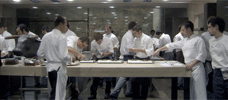
El Bulli
2010 -

Submarine
2010 -

Stake Land
2010 -

Another Earth
2010 -

If a Tree Falls
2011 -
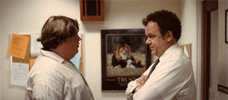
Terri
2011 -

The City Dark
2011 -

Littlerock
2010 -
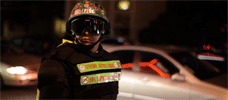
Superheroes
2011 -
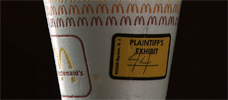
Hot Coffee
2011 -
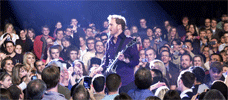
Conan O’Brien Can’t Stop
2011
We don’t do comments anymore, but you may contact us here or find us on Twitter or Facebook.



